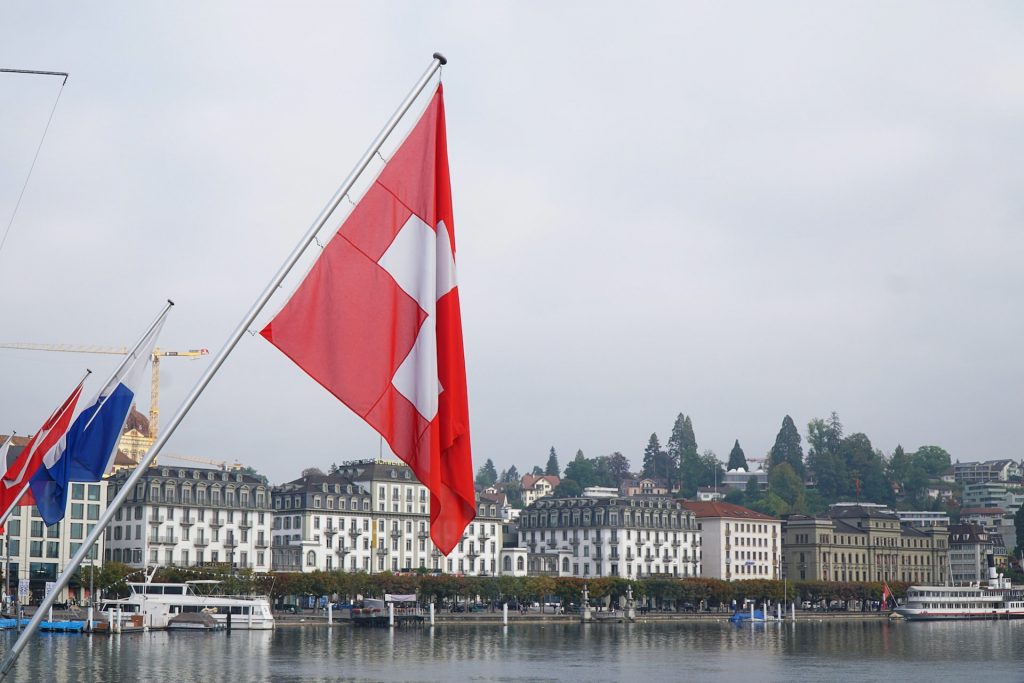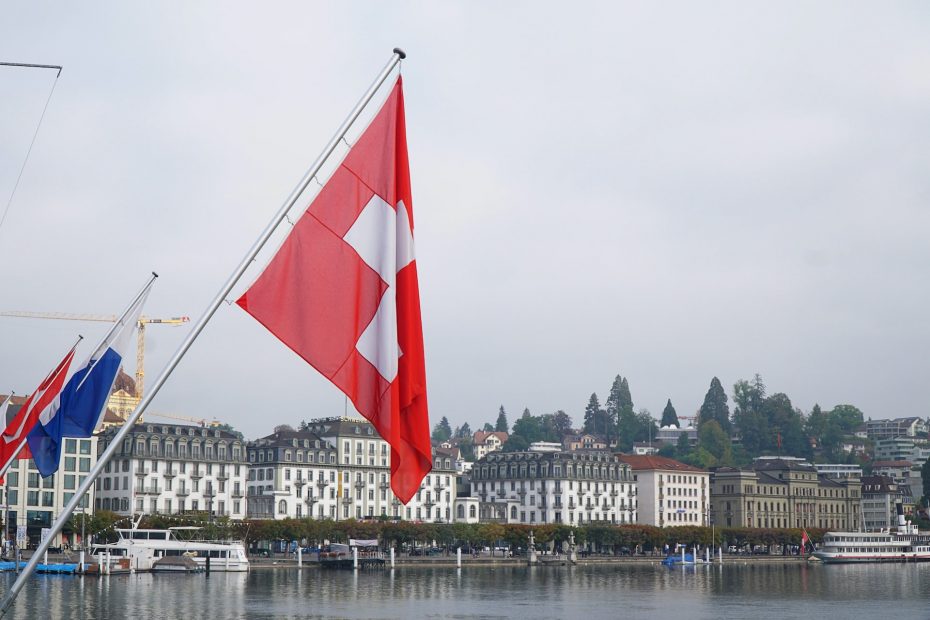Switzerland despite its small size as a country with only about eight million inhabitants, is known to be a fascinating country placed at the heart of Europe, having the likes of France, Germany, Italy, Austria, and Lichtenstein as its neighbours. It is home to some great tourist sites, with spectacular culture, music tradition, craftsmanship and various festivals. All these enable students to enjoy a convenient and welcoming environment while studying. Good and quality education is also extremely essential for mankind’s advancement and integral development, which is greatly emphasised in Switzerland.
This article encompasses information concerning the educational institutions, that which revolves around studying abroad in Switzerland.

Subtopics:
- About Studying in Switzerland
- Why Study in Switzerland?
- Switzerland Educational System Compared to Other Countries
- Top Institutions in Switzerland
- Scholarships/ Financial Aids/ Bursaries
- Student Visa Processing/ Procedures
- Post Study Opportunities
Why Study in Switzerland?
It is quite encouraging for citizens and international students to study and enrol in Swiss institutions as the country makes available opportunities and various advantages that can be easily accessed. Also the expenses and opportunities of studying abroad in Sweden depends and revolves around the selected institution. The process applied for convenient transfer of students who want to study abroad in Switzerland is based on European Credit Transfer and Accumulation System. The programs and degrees which can be applied for are:
- The Bachelor’s Degree: This is generally a three years’ study; however, the likes of Medicine take up to five or six years.
- Master’s Degree: This takes a year or two and for both local and international students in Switzerland who are interested in taking a Master’s degree, there must be a completion of Bachelor’s degree.
- Doctorate Degree: This degree takes an interval of three to five years. Before delving into this, as an international student, there is a necessary requirement of having gotten a Master’s degree. The Doctorate degrees available for students interested in furthering their study abroad in Switzerland are; General PhDs and Structured PhDs.
Switzerland ‘s Educational System Compared to Other Countries
Education in Switzerland is compulsory and the educational system primarily decentralized with the existences of 26 cantons each having its standard. The central government regulated two out of twelve universities in Switzerland. This the structure of the educational system goes thus; primary, secondary, upper secondary and tertiary education. Majority of the local and international schools in Switzerland are free. Also many Switzerland Universities begin between the months of August and September.
Nine years of primary and lower secondary education are required as part of compulsory education (secondary I). Depending on the Canton, primary education lasts anywhere between four and six years. Depending on the Canton, lower secondary education lasts three to five years. Secondary II, or upper secondary education, lasts between three and four years but is not required. Academic schools (Maturitätsschulen) and vocational schools are the two primary categories of upper secondary schools (Berufsfachschulen). Vocational secondary schools prepare students for a variety of occupations, Higher Vocational Schools (Höhere Fachschulen), and Universities of Applied Sciences (if combined with the Professional Baccalaureate). Secondary school stage is where students are trained for universities and teacher training schools.
Higher Education
Ten cantonal universities, two federal institutes of technology, seven universities of applied sciences (Fachhochschulen), as well with several advanced vocational colleges, make up Switzerland’s higher education system at the university level. Only postgraduate programs are available at private universities. Except for medicine at the German-speaking universities, there is no numerus clausus for courses studied at the university level. Studies in medicine, dentistry, veterinary medicine, pharmacy, chemistry, and surveying are subject to federal government regulation and must adhere to national standards.
Switzerland has a dual university system with two types of universities: Universities and Universities of Applied Sciences, including Schools for Teacher Education, UAS Schools of Art and Design, UAS Schools of Music, and UAS Schools of Theatre. Since the transfer of Advanced Vocational College, HTL (technology), HWV (economics), and HFG (design), etc. to Universities of Applied Sciences. The 3–4 year programs at universities of applied sciences are focused on the particular profession and its surroundings. Graduate study programs based on the Bologna Model are being introduced by Swiss universities and universities of applied sciences. While some universities have altered their systems already, others are still in the process.
Bachelor’s Degree:
Undergraduate courses take between six and eight semesters to complete, and a diploma is awarded at the end. The first level, leading to a Bachelor’s degree, offers a foundational academic education and emphasizes systematic intellectual thinking. The Bachelor courses at the Universities of Applied Sciences also stress profession and practice. The prerequisite for continuing your education to earn a master’s degree is having a bachelor’s degree.
Master’s
In-depth study is done during the second period (major studies), usually with some specialities. A Lizentiat/Licence in the humanities, law, and sciences is awarded after an additional four semesters. For the Diploma/Diplôme in Engineering, an additional five semesters are necessary. In contrast to dentistry, pharmacy, and veterinary medicine, which all require between 12 and 12 semesters, medicine requires a total of 10 semesters.
Postgraduate study
Universities and Universities of Applied Sciences provide shorter postgraduate courses that can be completed in one year and lead to the award of a Certificate or a Diploma. They are typically part-time courses with a focus on careers. Meanwhile, several colleges and universities of applied sciences are providing further training through advanced master’s programs, or MASs, that need at least 60 credits (Master of Advanced Studies). The doctorate is regarded as a stage of postgraduate education in Switzerland. It is given out by the two Federal Institutes of Technology and the ten cantonal institutions in fields of study like the humanities, law, economics, and medicine, etc. The time spent studying varies. The doctorate in science could take an additional two to five years, while the doctorate in engineering could take two to four years. One to three years in German-speaking colleges and up to four years in French-speaking institutions are typical study times for law, economics, and social sciences. The defense of the doctoral thesis (Doktorpruefung/Examen de Doctorat) may take the form of a viva voce, a written and oral examination, or two written exams and three oral exams in the candidate’s major and minor areas of study.
Medical specialization and professorship qualification at the university level (Habilitation)
A Diplôme de spécialité can be prepared by doctors of medicine and dentistry who specialize in orthodontics after five to seven years of practical experience as assistant physicians. FMH (Foederatio Medicorum Helveticorum) is a designation used by medical professionals to identify themselves. After four years of postdoctoral study and a test, dentists are awarded the title Kieferorthopäde SSO/Spécialiste SSO orthodentie. These specialities are being updated right now. The Habilitation, the highest academic degree, is only given out in major subjects at German-speaking universities. Candidates are required to deliver a public lecture following the submission of a thesis (Habilitationsschrift). A professorship is available with the habilitation.
Top Institutions in Switzerland
Switzerland is known to have some of the best and high ranked universities in the world and the educational system is such which is favorable to both Swiss and international students studying abroad in Switzerland. Also as earlier mentioned varieties of degrees are also offered in these universities and they include: Bachelor of Science, Bachelor of Business Administration- Business Communication, Bachelor of Business Administration- International Management, Master in Sports, Masters in Marketing, Doctor of Laws, and so many more.
There are arrays of universities in Switzerland available for students who want to further their studies abroad in Switzerland. The universities listed offer quality education and the tuition fees are reasonable; ETH Zurich, University of Geneva, University of St. Gallen, University of Lausanne, University of Basel, University of Neuchatel, University of Basel, University of Applied Sciences and Arts Western Switzerland, American University in Switzerland, EU Business School, University of Bern, University of Fribourg, Zurich University of the Arts.
ETH Zurich
This is a highly ranked university in the world with an average tuition fee of CHF 1,298 CHF per year for all students, both Swiss and non-Swiss. It is no doubt one of Switzerland’s oldest universities, a research institute which has gained attraction to both national and international students studying abroad in Switzerland. Diverse courses are made available at the institute with more than 21,000 students studying in the institute, from all over the world. Also, the tuition fee for students is about CHF 1,299 per year. Some of the courses or programs made available for a bachelor’s degree in ETH Zurich are; Biology, Environmental Science, Food Science, Pharmaceutical Science, Environmental Science, Physics, Computational Sciences and Mechanical Engineering. As for Master’s degree, some of the courses are; Comparative and International Studies, Applied Technology, Chemical and Bioengineering, Integrated Building Systems, Mechanical Engineering, History and Philosophy of Knowledge.
University of Geneva
The University of Geneva is widely known for its expertise in research and it was founded in the year 1559. Various opportunities are made available by the universities for its students, both national and international students studying abroad in the University of Geneva. This an affordable institution with an average tuition fee 500 CHF per semester, basically 900 EUR per year for both Swiss students and international students studying in Switzerland. There are more than 240 programs for students enrolled into the university. Some of the courses for bachelor’s degree are; Biochemistry, Ancient History, Dental Medicine, Classical Studies, Economy and Management, Biomedical Sciences, Education and Training Orientation. Master’s degree programs include; Civil and Criminal Law, Communication and Media Sciences, European and International Governance, Bilingual Economic Law and International Economic and Social History.
University of St. Gallen
This is an accredited university which is very affordable and has accepted a lot of international students. It was founded in 1898 and it is recognized as a reputable business and research institution in Switzerland having varieties of courses and programs to offer its international students studying abroad in Switzerland. The degrees for the courses offered are also largely recognized, thereby giving students a high chance of having securing better jobs and successful careers in Switzerland and also in the international or world job market. Quite a number of International students studying in University of St. Gallen are being enrolled for courses such as; For Bachelor’s degree- Economics, Business Administration and International Affairs. For Master’s degree- Banking and Finance, Business Innovation, International Law and Business Engineering.
University of Lausanne
The University of Lausanne is one of Switzerland’s oldest universities with seven faculties. The university’s main campus is based along Lake Geneva’s shore. The University of Lausanne is known to provide its students with a conducive and spacious environment having as beautiful lakeside setting. Also, there are research and technological facilities, sport facilities, health facilities and up- to-date facilities. In addition, the university focuses its research on certain courses or subjects; Human and Social Sciences, Sciences and Medicine and Environmental Sciences.
Some courses or programs offered by the university for a Bachelor’s degree are; English Literature, Art History, Pharmaceutical Sciences, Social Sciences and Ancient Greek. Some of programs made available for Master’s degree are; Healthcare Management Focus, Criminology and Security, Behavior, Evolution, and Conservation, Advanced Nursing Practice and Information Systems.
Check here for best universities in Switzerland For International students
University of Basel
The University of Basel is recorded as Switzerland’s oldest university and it was founded in 1460. IT has maintained a high rank as part of the top universities in the whole world. The university has been able to successfully enrolled a lot of national and international students with variety of educational opportunities made available. The University of Basel had recorded numerous achievements particularly in the areas of research and teaching. Also, the university is known to have an extensive curriculum and a wide range of quality educational programs offered. A Bachelor’s degree is made available for quite a number of courses such as; Eastern European Cultures, Anthropology, Gender Research, Pharmaceutical Sciences, Jurisprudence and Musicology. For a Master’s degree some of the programs offered in the University of Basel are; Computer Science, Ancient History, Drug Sciences, Epidemiology, Drug Sciences, Business and Technology, Epidemiology, and Cultural Techniques
Scholarships/ Financial Aids/ Bursaries
The funding of international students studying abroad in Switzerland for a degree is quite numerous.
There also exists government-funded public universities in Switzerland. Various scholarships have been offered by the Switzerland government as evident in the existing government-funded public universities. Scholarships can cover tuition fees, some cover living expenses and bursaries. Some universities like Zurich provide for solidarity funds and interest free loans for students studying abroad in Switzerland. Scholarships made available to international students studying in Switzerland are:
The Swiss Government Excellence Scholarships for Foreign Scholars and Artists
This Government Excellence Scholarship is awarded by the Swiss Confederation for the purpose of international research and cooperation between Switzerland and other countries all over the world. This scholarship is made available for those who wish to apply provided they hold a Master’s degree or PhD or for a foreign artist the minimum of a bachelor’s degree. This scholarship program consists of Research scholarship which is for post graduate and also Master’s degree holders. The second is the Art scholarship. Some reputable Swiss universities to which this scholarship applies are; University in Geneva, University of Lausanne, University of Neuchatel, University of Zurich, University of Bern, University of Basel, University of Fribourg and University of St. Gallen.

EPFL Excellence Fellowship in Switzerland
This scholarship places no restriction on any nationality and it is a fully funded program for students having excellent educational or academic records. The EPFL Excellence Fellowship is hosted by Switzerland in the institute of Lausanne. It is basically a Master’s level program which requires applicants to be holders of a Bachelor’s degree. Applications for the scholarship is to be done on the official website. Some of the documents required are; C, Motivation letter, Letter of recommendation and Transcript.
It is to be noted that these scholarships are not to the exclusion of any nation. Hence, some of the nations from which applications can be received are;
Afghanistan, Algeria, Antigua And Barbuda, Argentina, Australia, Austria, Bahamas, Bahrain, Barbados, Belarus, Belgium, Benin, Bhutan, Bosnia And Herzegovina, Brazil, Brunei Darussalam, Burkina Faso, Burundi, Cameroon, Canada, Central Africa Republic, Chad, China, Colombia, Cool Islands, Cuba, Cyprus, Democratic Republic Of Congo, Denmark, Djibouti, Dominica, Dominican Republic, Ecuador, Egypt, El Salvador, Equatorial Guinea, Eritrea, Estonia, Ethiopia, Fiji, Finland, France, Gabon, Gambia, Georgia, Germany, Ghana, Greece, Guinea, Guinea-Bissau, Guyana, Haiti, Hungary, Iceland, India, Indonesia, Iran, Iraq, Ireland, Israel, Italy, Jamaica, Japan, Jordan, Kenya, Kiribati, North Korea, South Korea, Kosovo, Kuwait, Lebanon, Lesotho, Liberia, Libya, Lithuania, Luxemburg, Madagascar, Malawi, Mali, Mexico, Mongolia, Maldives, Morocco, Myanmar, Montenegro, Nigeria, Niger, Norway, Oman, Pakistan, Peru, Portugal, Russia, Serbia, Singapore, Spain, Sudan, Togo, Turkey, Tuvalu, Uganda, Uruguay, Vietnam, Zambia, Zimbabwe, and Others.
Student Visa Processing/ Procedures
To get and process a Swiss student visa basically depends on the student’s nationality or country of origin. The visa which an international student who desires to study in Switzerland, can apply for are: C Visa and D Visa, short and long-term visas respectively. The C Visa covers a student’s stay in Switzerland for a period of three months while the D Visa last for a longer period and for international students studying in Switzerland the Schengen visa can be granted with high chances of being extended.
EU/EEA/EFTA Nationals need not apply for visas to study in Switzerland but only need to meet with other requirements such as registration, proof of admission, health insurance and the likes.
Non-EU/EEA/EFTA Nationals must necessarily hold a Swiss student visa to live and study in Switzerland. This is coupled with other requirements to be met with upon request at the Switzerland Embassy or Consulate. Such as; passport-size photographs, a valid passport or ID, proof of acceptance into a Switzerland university, CV, language and health insurance.
Post Study Opportunities
Students studying in Switzerland institutions are still eligible for jobs or work for a maximum period of fifteen hours, however getting a full-time job will require a work permit. Most doctoral students having studies in Switzerland are given employment in the universities. There are also high chances of having a guaranteed employment after studies depending on the degree. Some degrees which attract immediate employment are; Information Technology (IT) which is highly paid and having an average salary of about CHF 135,295. Computer science is offered in many Switzerland Universities open to international students who desire to study abroad in Switzerland. Universities such as ETH Zurich. This degree attracts jobs at different firms and companies. Other degrees are Healthcare, Engineering, Economics and Accounting amongst others with relatively high payment made as salary.
Final Thoughts
International students from all over the world are welcome in the small European nation of Switzerland. It is a nation renowned for its top-notch educational institutions, innovative research facilities, and dedication to funding the most promising future businesses.
The open, fascinating, and forward-thinking country of Switzerland recognizes the importance of supporting emerging talent. You can receive a top-notch education there, meet incredible people, and perhaps even l your career.
